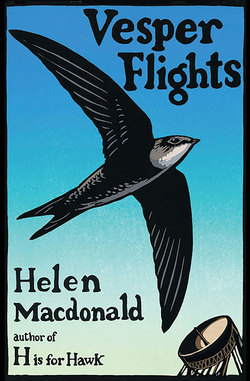Читать книгу Vesper Flights - Helen MacDonald - Страница 6
На сайте Литреса книга снята с продажи.
ОглавлениеIntroduction
Back in the sixteenth century, a curious craze began to spread through the halls, palaces and houses of Europe. It was a type of collection kept often in ornate wooden cases, and it was known as a Wunderkammer, a Cabinet of Curiosities, although the direct translation from the German captures better its purpose: cabinet of wonders. It was expected that people should pick up and handle the objects in these cases; feel their textures, their weights, their particular strangenesses. Nothing was kept behind glass, as in a modern museum or gallery. More importantly, perhaps, neither were these collections organised according to the museological classifications of today. Wunderkammern held natural and artificial things together on shelves in close conjunction: pieces of coral; fossils; ethnographic artefacts; cloaks; miniature paintings; musical instruments; mirrors; preserved specimens of birds and fish; insects; rocks; feathers. The wonder these collections kindled came in part from the ways in which their disparate contents spoke to one another of their similarities and differences in form, their beauties and manifest obscurities. I hope that this book works a little like a Wunderkammer. It is full of strange things and it is concerned with the quality of wonder.
Someone once told me that every writer has a subject that underlies everything they write. It can be love or death, betrayal or belonging, home or hope or exile. I choose to think that my subject is love, and most specifically love for the glittering world of non-human life around us. Before I was a writer I was a historian of science, which was an eye-opening occupation. We tend to think of science as unalloyed, objective truth, but of course the questions it has asked of the world have quietly and often invisibly been inflected by history, culture and society. Working as a historian of science revealed to me how we have always unconsciously and inevitably viewed the natural world as a mirror of ourselves, reflecting our own world-view and our own needs, thoughts and hopes. Many of the essays here are exercises in interrogating such human ascriptions and assumptions. Most of all I hope my work is about a thing that seems to me of the deepest possible importance in our present-day historical moment: finding ways to recognise and love difference. The attempt to see through eyes that are not your own. To understand that your way of looking at the world is not the only one. To think what it might mean to love those that are not like you. To rejoice in the complexity of things.
Science encourages us to reflect upon the size of our lives in relation to the vastness of the universe or the bewildering multitudes of microbes that exist inside our bodies. And it reveals to us a planet that is beautifully and insistently not human. It was science that taught me how the flights of tens of millions of migrating birds across Europe and Africa, lines on the map drawn in lines of feather and starlight and bone, are stranger and more astonishing than I could ever have imagined, for these creatures navigate by visualising the Earth’s magnetic field through detecting quantum entanglement taking place in the receptor cells of their eyes. What science does is what I would like more literature to do too: show us that we are living in an exquisitely complicated world that is not all about us. It does not belong to us alone. It never has done.
These are terrible times for the environment. Now more than ever before, we need to look long and hard at how we view and interact with the natural world. We’re living through the world’s sixth great extinction, one caused by us. The landscapes around us grow emptier and quieter each passing year. We need hard science to establish the rate and scale of these declines, to work out why it is occurring and what mitigation strategies can be brought into play. But we need literature, too; we need to communicate what the losses mean. I think of the wood warbler, a small citrus-coloured bird fast disappearing from British forests. It is one thing to show the statistical facts about this species’ decline. It is another thing to communicate to people what wood warblers are, and what that loss means, when your experience of a wood that is made of light and leaves and song becomes something less complex, less magical, just less, once the warblers have gone. Literature can teach us the qualitative texture of the world. And we need it to. We need to communicate the value of things, so that more of us might fight to save them.
